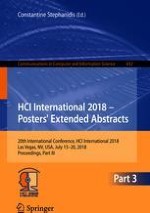2018 | OriginalPaper | Buchkapitel
Media and Cognition Course: How to Cultivate Technical Leaders in Artificial Intelligence
verfasst von : Yi Yang, Jiasong Sun
Erschienen in: HCI International 2018 – Posters' Extended Abstracts
Aktivieren Sie unsere intelligente Suche, um passende Fachinhalte oder Patente zu finden.
Wählen Sie Textabschnitte aus um mit Künstlicher Intelligenz passenden Patente zu finden. powered by
Markieren Sie Textabschnitte, um KI-gestützt weitere passende Inhalte zu finden. powered by
